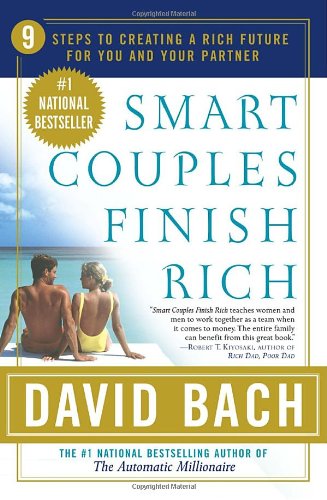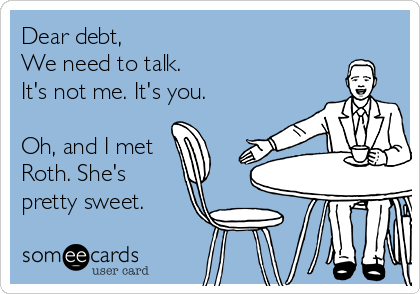Goals and resolutions strike back!
Holy macaroni, does the time fly or what!? Feels like only few days ago I was putting together the list of our goals and resolutions for this year. And here we are, almost half way through the year. Somebody asked me other day - how am I doing on my goals and resolutions? Have I given up yet? Well, let’s take a look at the original goals:
1. Invest 30% of our income

Goals and Resolutions Update
HIT! This goal was smashed to pieces! For every single month starting from January to May we’ve put away 30% of our income towards investments for the future. It doesn’t include saving for future spending (new car or travel, etc.), it includes specifically saving money towards investments for our financial independence. Check out our latest investment in solar energy in Ontario!
In fact, we’ve increased it to 33% (weird number but whatever works!) few months ago after we realized we actually have some leftover money in our budget. Being debt free has an awesome effect of leaving more money in your pocket; money you can put towards your own goals, not your bank’s. Take that, big banks!
Most financial advisors recommend saving at least 10% towards retirement, but I really feel 10% won’t be enough - partly because we don’t make a lot of money, so it will take a larger portion of our income to save considerable amount of money. Not fair, but just means we have to work harder on this saving thing. Years ago we’ve started with 10%, later increased it to 20%, and now we’re at 33% rate of savings. One day I’d like to get to 50% of savings through either increasing our incomes (can somebody hire me for $100,000/year? I’m great at making sarcastic comments and eating sandwiches), or cutting down our expenses - although we already live lean and mean.
BONUS HIT #1!: We’ve finished saving for a new car. Our car is a gazillion years old by now, and while it served us faithfully for years, the chances of it breaking down beyond reasonable repairs are getting higher with every kilometer. Heck, with almost 250,000 kilometers on its speed-o, the engine might fall out tomorrow. So, few months ago we’ve opened up a savings account just for this and been throwing whatever we can into it on a monthly basis, including our 2013 tax refunds. Now that we have $10,000 sitting in that account (I ain’t paying over $10,000 for a new car), I don’t really care if this one breaks down one day - we can simply write a check and buy a new one overnight. One less thing to worry about!
BONUS HIT #2!: We’ve also increased our mortgage payment by 10%. While it wasn’t on my original list of goals and resolutions, this is something we’ve been doing every year for the last 3 years. Thankfully, our mortgage company doesn’t mind us doing it unlike some restrictive banks out there. This is the trick I’ve learned from one of my friends - by increasing your mortgage payment every year, you’re speeding up the repayment process by years. And while having extra money for fun might have been nice, seeing our mortgage being repaid is fun too, trust me. Besides, we can always find something cheap for fun, fun doesn’t have to be expensive. Heck, when I was a kid I played with a stick for fun…and it was fun!
2. Update my blog on a weekly basis

Goals and Resolutions Update
CLOSE CALL!: In five months (January to May) I’ve made eighteen entries in my blog, so it works out roughly 3.6 times/month which is a bit below my goal. Now, this goal really doesn’t change anything in my world, but the whole point was to work out a bit of a habit for myself. And I’m almost there! March was a bit of a miss with only one entry because I got incredibly busy at work. So, with some extra entries here and there, I hope to bring up the overall total to 5 (five) times a month by the end of the year.
Here are three of my favorite posts written in this period:
Why I Don’t Want to Buy a New Car - this blog entry was featured in Globe and Mail and caused a record number of comments (some of them were surprisingly angry).
How much money do Olympic athletes earn? - just something I’ve always been wondering about so I did some research on Internet.
Investing in solar energy - blog post about our latest investment, and why I hope to make some money with Ontario’s solar energy.
On a side not, I’m really enjoying this whole blogging thing. I do like writing, and I’d like to think that my posts are somewhat informative and helpful for other people. Reading other blogs is also quite enjoyable, and I love little friendships with like-minded individuals I’ve formed in the last few months. Twitter is not exactly my thing, but I love being able to talk to people across the world who are facing same challenges and have similar goals when it comes to financial freedom.
Here’s some blogs I’ve been enjoying lately:
Million Dollar Journey - Awesome blog about smart investing towards financial independence.
Freedom Thirty Five Blog - Liquid blogs about out-of-the-box investing towards financial freedom and top 1% status. He focuses on less traditional investments such as investing in farmland in Saskatchewan, and mortgage investment corporations (something we’ve invested in ourselves). Fantastic read if you’re looking for something both informative and entertaining.
Budgets Are Sexy - hawk-sporting J. Money makes financial nerdiness cool. He’s a pimp daddy of personal finance blogs.
Stacking Benjamins - great blog and also podcast about financial matters run by Joe and OG. Before I found them, I thought I was the biggest movie nerd in history. These guys surely put me to shame with their movie references.
Mr. Money Mustache is a legend by now. Blogs about simple living and how he managed to retire by his 30th birthday.
3. Lose 50 lbs. of weight

Goals and Resolutions Update
EPIC FAIL!: Well, I failed miserably in this department. But it’s not going anywhere from my list of goals and resolutions for this year!
My original intentions were to carefully track my food intake to the point of weighing all my meals and at the same time to ramp up my gym visits. As far as tracking down food intake, it stopped around March (my excuse was being busy) and never resumed. Gym visits are sporadic - and while I truly enjoy working out once I’m there, sometimes watching yet another episode of Dragons’ Den on Netflix seems like a way better way to pass the time than lifting heavy things and putting them down. Seriously, that’s all people do there.
I find it funny (and sad at the same time) that I have enormous discipline when it comes to finances and can fight over a single dollar in our budget just to hit our goals (sometimes it backfires on me), yet when it comes to simple things like going to a gym or cutting down on cheese appear to me as incredibly hard things to conquer. Frustrating!
4. Read a new book every two weeks

Goals and Resolutions Update
HIT! While this goal doesn’t have anything to do with personal finance or investing, I’m proud that I’ve hit it. There are many ways to waste the time in this world, and reading books isn’t the worst of them. What can be better than acquiring new knowledge and being lightly entertained at the same time?
Here’s some of the books I’ve enjoyed lately:
Wolf of Wall Street by Jordan Belfort. This book was later turned into a movie by the same name starring Leonardo DiCaprio.
Wiseguy: Life in a Mafia Family by Nicholas Pileggi
The Behavior Gap by Carl Richards. Brilliant book that discusses how most people miss out on great returns by making some rather stupid things with their investments.
The Richest Man in Babylon by George Samuel Clason. I’ve came to a conclusion that everything you need to know about personal finance is directly discussed in this book. If you read just this one book, you don’t need to read any other books on personal finance, seriously.
I’m planning on sticking to my schedule and making a point of reading two books a month.
5. Cut down on unnecessary information intake
WORK IN PROGRESS!
The reason why I put this on my list of goals and resolutions, was because I’ve noticed that sometimes I spend way too much on Internet (and other ways too) reading up on something that is completely irrelevant to my life. I’d be listening to talk radio on the way to work discussing latest politics scandals. I would find myself reading news on subjects that have no connection to my life whatsoever.
Why waste this time on it? Why obsesses myself with subjects that will never affect my life in any way. Who cares about politics? Shouldn’t I focus on my dreams and goals before paying attention to anything else?
So, now on the way to work me and my wife mostly talk instead of listening to daily news. I stopped paying attention to news sites and anything to do with politics. It’s work in progress, but it’s slowly getting better.
What’s next for goals and resolutions?
I’ll continue working on these goals and resolutions, and revisit the list once again, just around end of the year. I’m really hoping to make progress on all goals and resolutions I’m doing poorly right now, and I will try to excel at the ones I’m hitting already.
After all, if you’re a Financial Underdog and were not born with a silver spoon in your mouth and a nice trust fund to live off, the only thing that’s left to do is to keep working on improving yourself. And an occasional episode of The Walking Dead here and there, am I right?










